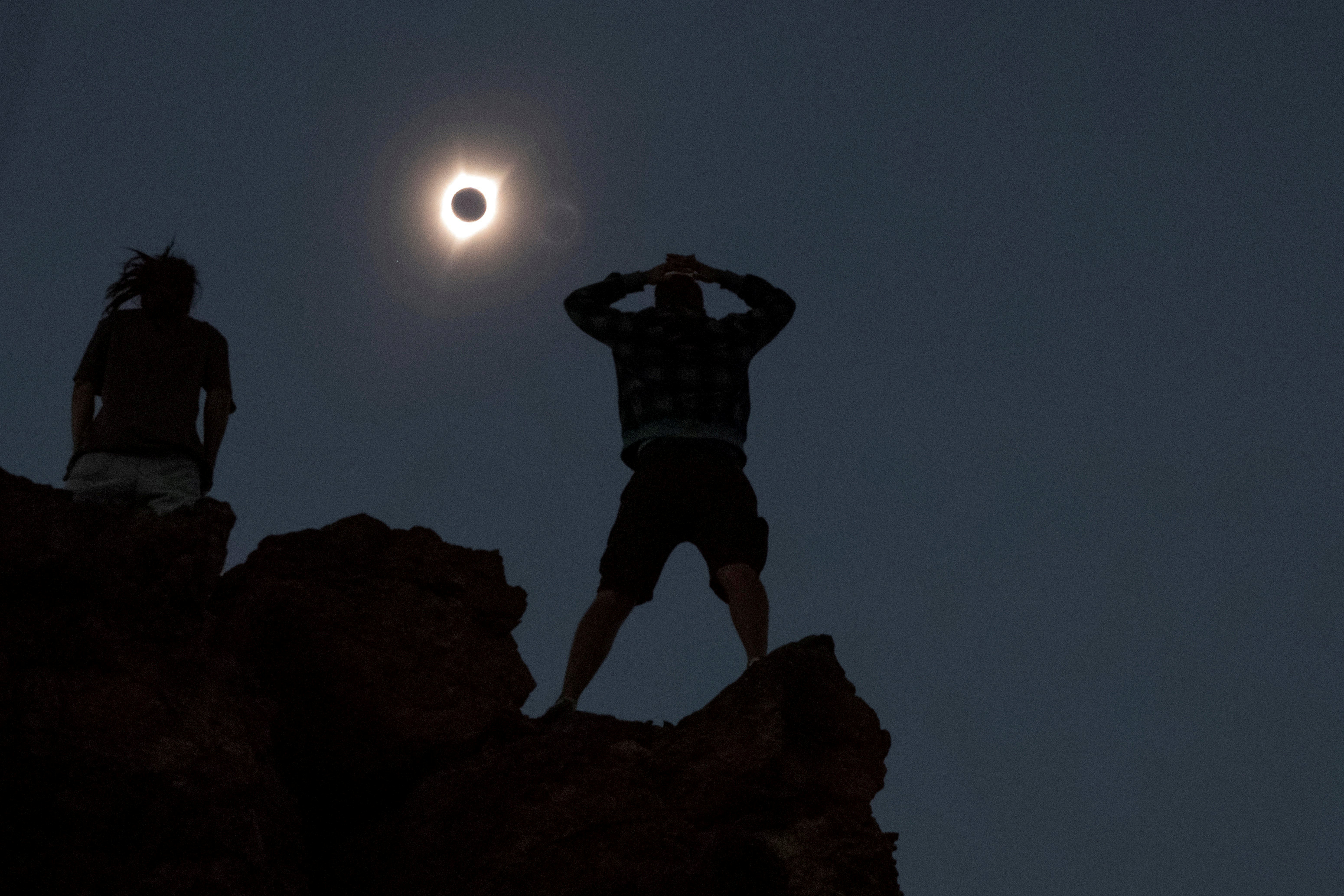A lesson from the eclipse
Even when the moon isn't covering the sun, the sky is astonishing


A free daily email with the biggest news stories of the day – and the best features from TheWeek.com
You are now subscribed
Your newsletter sign-up was successful
We should all look up more often. Tens of millions of Americans pulled their heads out of their work and their cellphones this week to witness a rare total solar eclipse, which created an eerie midday twilight as it rolled 3,000 miles across the country, spooking the birds and cows and leaving vast crowds of normally crabby humans cooing and exclaiming like children. Even for those of us who had to settle for a partial eclipse, it was thrilling — a reminder that we are passengers on a rock swinging through the solar system in a celestial dance choreographed by forces beyond our ken and our control. Awe is an uplifting emotion. It is good to feel small, to sense how brief and fragile our lives are in astronomical terms, to see that beyond the mundane lies a great mystery.
Like most people, I look up too infrequently. But seeing the sky always changes my mood for the better. Look up: The heavens are full of wonders even when the moon isn't blocking the sun. Every dawn and sunset is an astonishment of gorgeous light and startling, shifting color. All day, clouds tinged with gray, pink, and orange pass overhead like windblown thoughts, scudding across a canvas of depthless blue. At night, countless stars silently smolder in the black infinity, many or most of them (we now know) orbited by their own necklace of swirling planets and moons. Is anyone looking back when you look up? Why is the universe so incomprehensibly vast, with billions of galaxies, each containing billions of stars? Wondering about such things is somehow comforting — a welcome departure from the news, Twitter, and Instagram. This week, a great darkness fell upon America, and it was easy to understand why eclipses terrified the ancients, who saw them as portents of doom. But then the sun returned, advising us: Light defeats darkness. This, too, shall pass.
A free daily email with the biggest news stories of the day – and the best features from TheWeek.com
The Week
Escape your echo chamber. Get the facts behind the news, plus analysis from multiple perspectives.

Sign up for The Week's Free Newsletters
From our morning news briefing to a weekly Good News Newsletter, get the best of The Week delivered directly to your inbox.
From our morning news briefing to a weekly Good News Newsletter, get the best of The Week delivered directly to your inbox.
William Falk is editor-in-chief of The Week, and has held that role since the magazine's first issue in 2001. He has previously been a reporter, columnist, and editor at the Gannett Westchester Newspapers and at Newsday, where he was part of two reporting teams that won Pulitzer Prizes.
